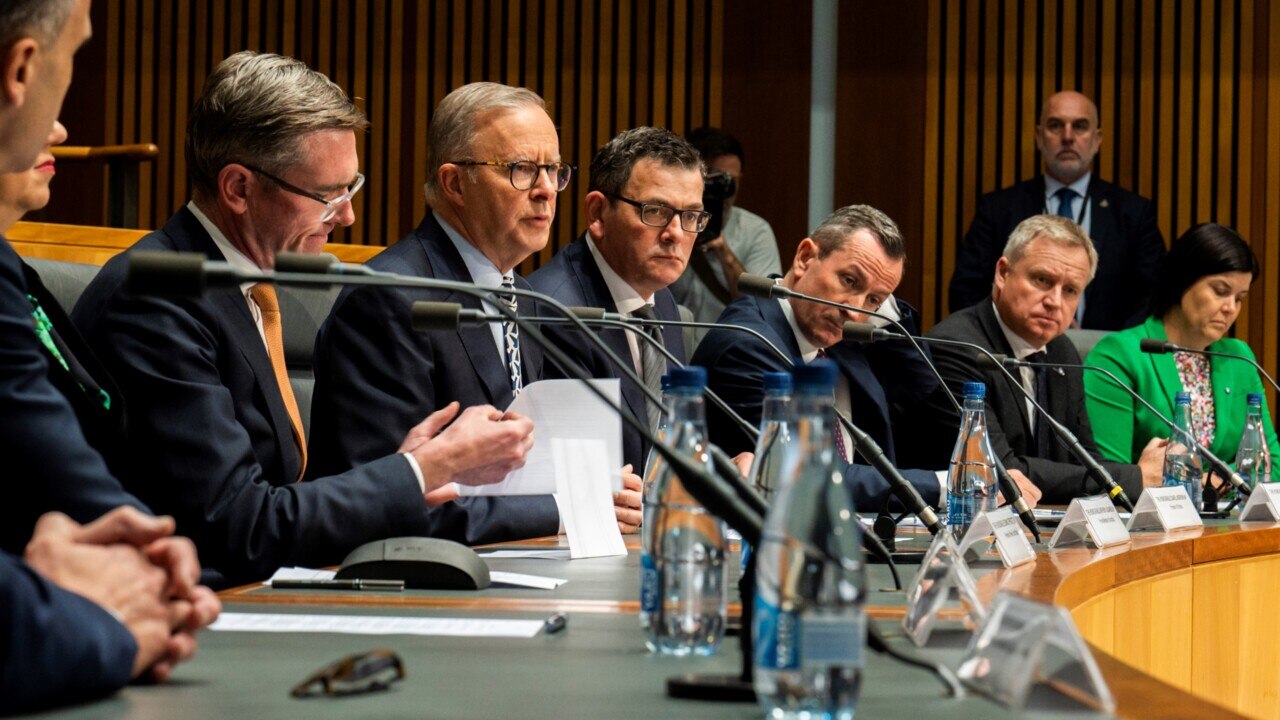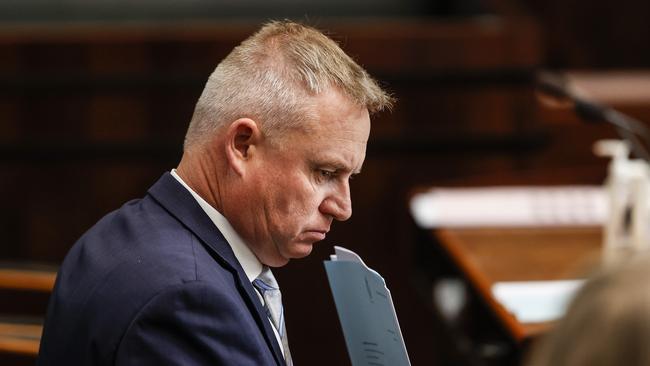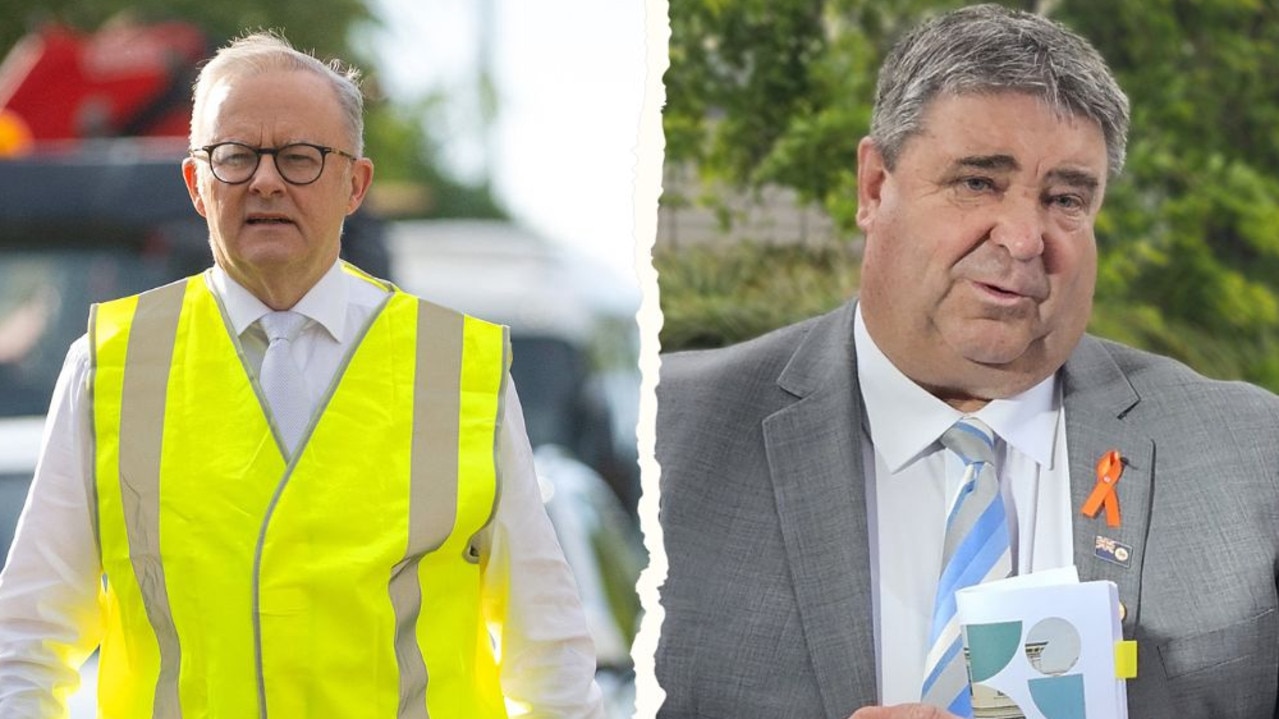Jeremy Rockliff denies government plans to levy land tax on family homes
Premier Jeremy Rockliff has denied his government has plans to levy land tax on family homes. Claims such a move might be on the agenda have circulated as the government looks to tackle rising debt.

Tasmania
Don't miss out on the headlines from Tasmania. Followed categories will be added to My News.
Premier Jeremy Rockliff has denied his government has plans to levy land tax on family homes.
Claims such a move might be on the agenda have circulated as the government looks to tackle rising debt.
In state parliament on Thursday, Mr Rockliff appeared equivocal on the move amid questioning from Labor.
He said there was a need for a “sustainable revenue base” and taunted Labor as not “having the stomach for reform”.
“I’m not going to play any ‘ruling it in or ruling it out’ games with you,” he said.
Soon afterwards, Mr Rockliff issued a press release ruling out such a move.
“Let me be very clear – the government has no plans to tax the family home,” he said.
“As per usual, Labor are simply making things up to mislead and scare Tasmanians. Labor clearly have nothing to offer Tasmanians, which is why they resort to misleading statements and lame scare campaigns.”
Land tax is levied annually on vacant land, commercial and rental properties and shacks. Former premier Peter Gutwein announced $220m in cuts to land tax in February, saying it would help keep a lid on rents.

Property Council of Australia Tasmania executive director Rebecca Ellston said property taxes should not be a first resort to fix the budget.
“The government continues to clearly view the property sector as the reliable bottomless piggy bank that can be raided repeatedly without consequence,’’ she said.
“The latest budget shows taxation collected from the sector growing by 22.3 per cent over the forward estimates, compared with a 15.9 per cent growth in overall taxation revenue. The government needs to explain to us why the industry is doing all the heavy lifting.
“With the recently proposed parliamentary reform by the new Premier to increase the size of the members of parliament, the Property Council is calling on the Treasurer to undertake a comprehensive review of state taxes and charges with the goal of implementing taxation reform by mid-2023.”
Labor Treasury spokesman Shane Broad said he was unconvinced by the Premier’s denials.
“In the middle of a cost-of-living crisis Premier Jeremy Rockliff is actively considering imposing additional taxes on Tasmanians,” Dr Broad said.
“Today in question time the Premier refused to rule out expanding land tax to the family home in an attempt to fix his budget black hole. He belatedly stated he currently has ‘no plans’ to do so via press release, but questions remain given his statements in parliament.”
Missing millions: Government’s Covid cash conundrum
THE Tasmanian government is chasing millions of dollars in unpaid hotel bills from people who stayed in quarantine during the pandemic.
Parliament has heard some of almost $2.5m outstanding hasn’t been collected in almost two years and is being chased by debt collectors.
Between February 2020 and February this year, some travellers arriving in Tasmania were required to stay in a government-managed hotel quarantine facility for up to two weeks.
Single people were charged up to $2800, couples up to $3800 and families were capped at $4800.
In response to a question from Labor, the Leader of Government Business in the Legislative Council Leonie Hiscutt said some people had still not settled their debt.
“There is a total of $2.425 million outstanding in regard to the hotel quarantine fees raised,” she said.

“Of this $1.334 million relates to invoices raised in the current financial year … and $1.091 million related to invoices raised in the prior financial year the 2020/21 financial year with outstanding invoices dating back to October 2020.”
Exemptions were available to the hotel charges in the event of financial hardship or if people were travelling to receive medical treatment.
The government had made what arrangements it could in order to help people clear their debts, Ms Hiscutt said.
“The money outstanding for hotel quarantine is made up of various amounts, including payment arrangements, money still being paid off through a payment plan, pending exemptions — that would be exemptions being processed for issues such as financial hardship — and the potential for bad debts.
“After the initial invoice is sent, the debtor receives a reminder letter that’s 30 days from the invoice date and then a final notice 14 days from the reminder and if they’ve not paid the account in full or made contact to organise a payment arrangement.
“If there is no payment or arrangement from 60 days, then the invoice may be lodged with the debt collection agency.”



